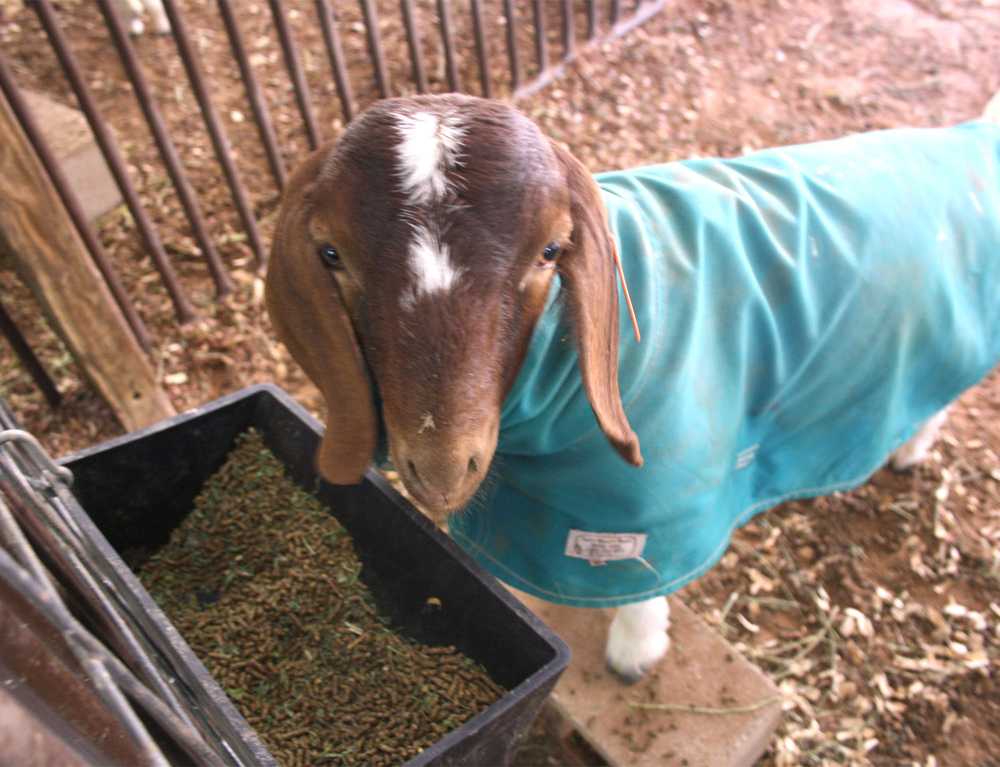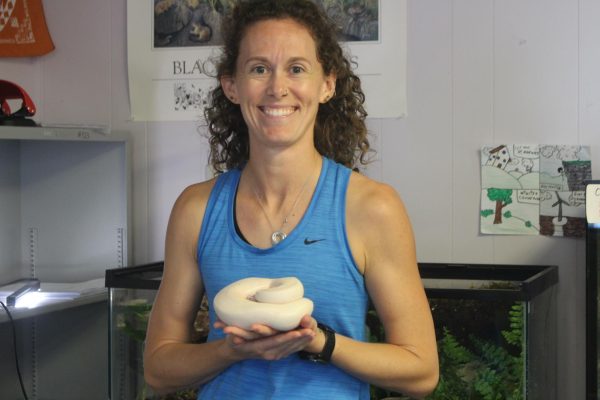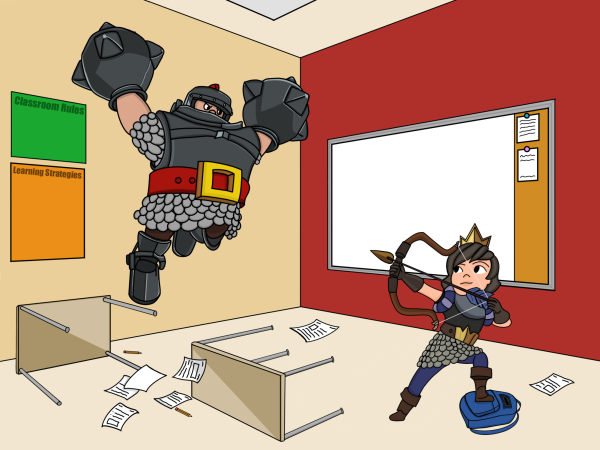FFA club members discuss obligations
A goat has a snack in the FFA barn. Students wake up early to feed, train and groom their animals for competition.
The responsibilities of being a member of the Future Farmers of America are like those of no other student organization on campus.
FFA involves multiple routines such as waking up early in the morning to feed animals, beautifying a creature that doesn’t naturally want to be groomed, and training, sometimes, non-cooperative animals how to walk to impress a judge or a buyer.
Senior Emily Hernandez, senior Robyn Clapper, and freshman Jordan Marrero said they have lots of fun as members of FFA. However, they say it’s a club in which you have to do more than just show up.
“You have to schedule everything at a specific time,” Clapper said. “You have to be sure to feed them at regular times, not too early or too late. I probably spend as much time up at the barn as I do here at school, because your animal is basically like your kid.”
Clapper, who is raising a hog named Gimli, admits that it takes patience and responsibility.
“You have to spend a lot of time training them to walk with a stick, so that takes a good couple of hours or days depending on how stubborn your animal is,” she said.
FFA involves a time commitment similar to that of sports. It also requires students to maintain passing grades so they can fully participate. If a student fails just one class, they can’t show their animals at contests until the next six weeks.
Hernandez, who is president of FFA, said she has to be a role model and leader to the other members.
“If you do something good, the other members will try harder to do well too and at the same time it brings a lot of responsibility to the chapter members,” she said.
As a new member Marrero said she enjoys spending time with the animals.
“It’s really fun taking care of all the animals, although a bit tiring because it takes a lot of work but I think it’s worth it,” she said.
Clapper said FFA has been very beneficial for her, teaching her skills like how to trim hooves, give shots and dehorn goats.
“I want to be a veterinarian and FFA has prepared me for what it’s like to be around animals,” she said. “And now I can tell if an animal is sick or not.”
“FFA is a great program and I’m proud to be a part of it,” said Hernandez. “It takes a lot of effort and responsibility, but it also prepares the students who would like to continue a career relating too this later in life.”
Working nearly all year to raise impressive livestock is what FFA students do.
Your donation will support the student journalists of Akins High School. Your contribution will allow us to purchase equipment and cover our annual website hosting costs.

Grade:12
Academy: Social Services
Year on Staff: 2
Why they are on staff? I Luv Newspaper + All That Jazz. Plus, I Want To Have Experience For The Major Newspaper World If That Ever Happens
What do you do for fun? I Like Making Music, Making Peanut Butter Cookies + Watching Daria
Plans for after high school? Who Knows
Hidden Talent: I'm Not Good At Anything







